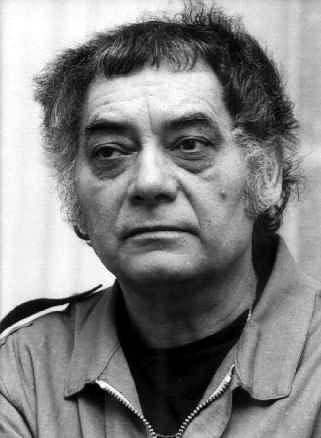Csoóri Sándor: Biography
Sándor Csoóri (Zámoly, 3 February 1930 – Budapest, 12 September 2016)
Poet, essayist, prose writer, politician, two-time Kossuth Prize winner and two-time József Attila Prize winner, awarded the title of Artist of the Nation. A founding member of the Digital Literature Academy from 1998 until his death.
*
Born in Zámoly on 3 February 1930 to a farming family. In 1942, with the help of the National Village Talent Research Institute which was founded by folk writers, he was sent to secondary school in Pápa. There he graduated from the Reformed College in 1950. Also in 1950, he became a staff member of the local daily newspaper. In 1951–52, he studied Russian history, Marxism, and literary translation at the Russian Institute of the Eötvös Loránd University of Budapest. However, he had to interrupt his studies due to illness and was admitted to a tuberculosis sanatorium.
In August 1953, 14 of his poems were published simultaneously. From 1953–54 he was a staff member of the literary magazine Irodalmi Újság. From 1955–56 he was editor of the poetry column of Új Hang. Ha was a freelance writer from 1958 to 1968, and from 1968 to 1988 he was a dramaturg at the Hungarian film production company MAFILM.
He was a leader of the intellectual and political opposition since the 1980s.
In 1987 he was a founding member of the Hungarian Democratic Forum political party, and between 1988 and 1993 he was a member of its board. From 1988 to 1992 he was chairman of the editorial board of the biweekly literary and social journal Hitel. In 1990 he was awarded the Kossuth Prize, which he had previously been denied due to his political activities. In 1997, together with Sándor Sára and Ferenc Kósa, he was awarded the Hungarian Heritage Prize for the film Ten Thousand Days.
From 1991 to 2000 he was President of the World Federation of Hungarians, and from 1992 he was also editor-in-chief of Hitel.
In his final years he led a life of retirement. He died on 12 September 2016 in Budapest.
The biography was written by András Görömbei, updated by DIA staff, translated by Benedek Totth and Austin Wagner.

